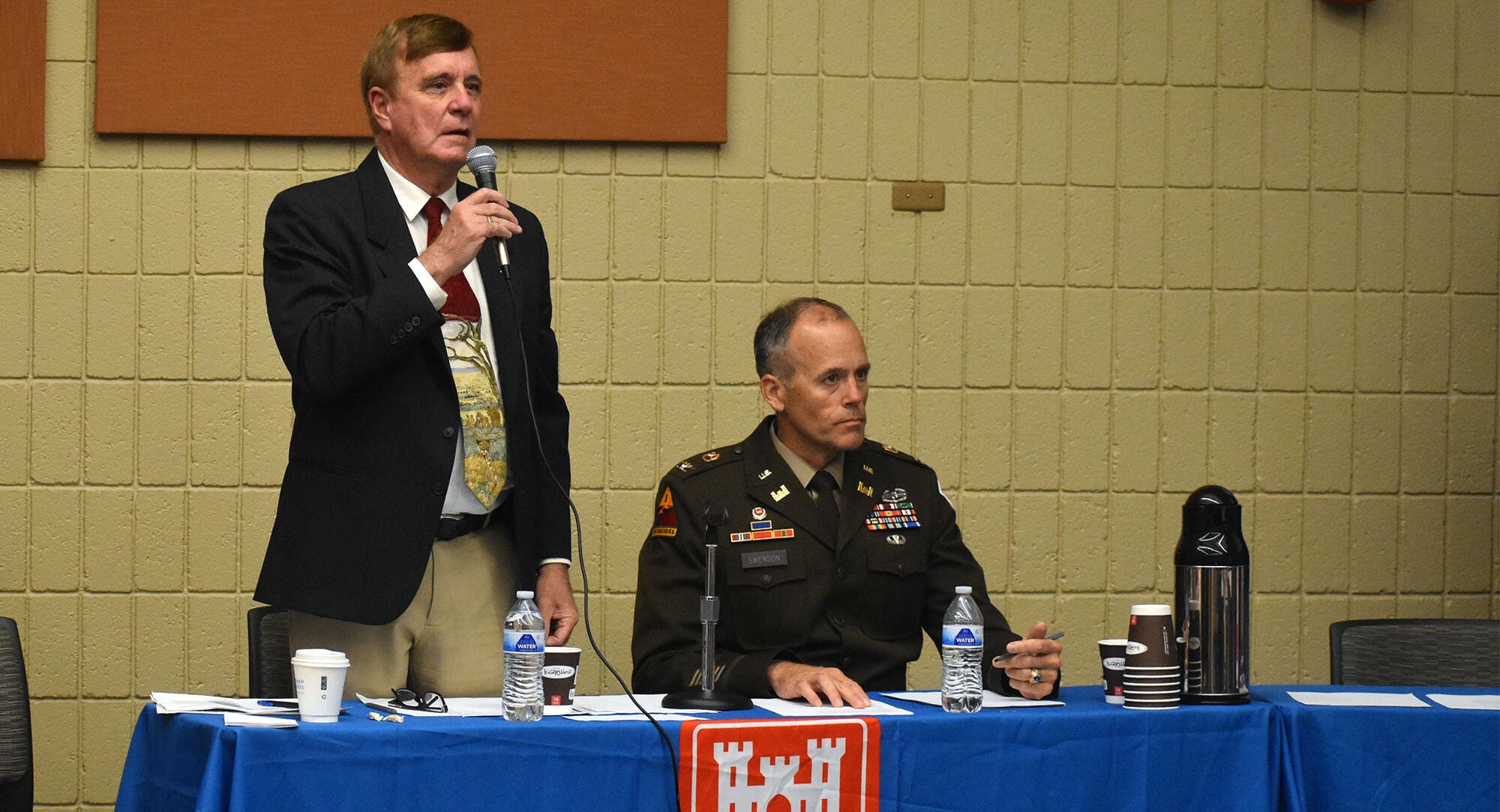During last year’s protests of the Dakota Access Pipeline, Native American demonstrators led the movement to protect the area’s water source. We look at the future of environmental advocacy and why Native Americans activists are likely to be key players. We also talk with Milwaukee Mayor Tom Barrett on the lack of Medicaid expansion in Wisconsin and why he says the state should accept more federal money. Plus, with nuclear programs in North Korea and Iran in the news, we discuss the balance of nuclear weapons in the 21st century.
Featured in this Show
-
Milwaukee Mayor Says WI Should Have Expanded Medicaid, Could Have Saved $700M
Milwaukee Mayor Tom Barrett has argued that the state should consider accepting federal funding to expand Wisconsin’s Medicaid program, BadgerCare. He said by not originally accepting the money, the state is $700 million in the hole and saving that money could have benefited numerous programs in Wisconsin. We speak with Mayor Barrett on Central Time.
-
Native Americans And The Fight For Clean Water
In the wake of the Standing Rock protests, our guest explores the role of Native Americans in environmental advocacy in Wisconsin and beyond.
-
Wisconsin Tribal Member Hopes 'Ethics And Good Sense Prevail' In Enbridge Debate
In January 2017, the Bad River Tribal Council passed a resolution not to renew easements on some parts of the tribal reservation land with Enbridge Energy for part of its Line 5 pipeline. The Bad River Band of Lake Superior Chippewa wants the Canadian energy firm to remove its pipeline from the reservation.
The line, originally built in 1953, is more than a decade past its 50-year shelf life, and runs from Superior to the Straits of Mackinac.
Patty Loew, a member of the northern Wisconsin tribe, said the pipeline’s route is in an environmentally sensitive area. She said the area, which includes 71 acres of wild rice, is where Lake Superior’s lake trout spawn and is where people get their drinking water out of Chequamegon Bay.
“We’re trying to protect our way of life, of course, but we’re trying to protect our water not just for ourselves, but for everybody in the area, because clean water and clean air doesn’t know reservation boundaries,” Loew recently told “Central Time,” after penning a piece in Madison Magazine titled, “The next big pipeline protest?“
She said it’s clear the Dakota Access Pipeline route and the protests on the Standing Rock Sioux Reservation in North Dakota elevated public awareness about pipelines on a national scale.
However, she said there are key differences between the Dakota Access Pipeline and Enbridge’s Line 5.
“The Dakota Access Pipeline was on disputed treaty land north of the reservation. The Enbridge Line 5 pipeline is clearly on our sovereign land, and it traverses the entire width of our 120 acres from west to east,” she said.
The roughly 1,200-mile Dakota Access Pipeline goes from the Bakken oil fields in northwestern North Dakota, to South Dakota, Iowa and ends at a terminal in southern Illinois. Standing Rock Sioux Reservation tribal members and supporters fear the pipeline could harm waterways and threaten historical artifacts.
According to NPR, tribal and supporters argue they were not adequately consulted about the pipeline’s path. Part of the pipeline runs under a Missouri River reservoir, a primary source of water for the reservation, and construction could cause damage and violate tribal treaty rights.
Loew argues the battle over Enbridge has different and bigger stakes than the Dakota Access Pipeline, particularly given the Trump administration. She said most observers expect this issue to end up in court.
“I’m not sure that anyone wants the issue to go to the U.S. Supreme Court, given the makeup these days, but we’ll just have to wait and hope that ethics and good sense prevail,” she said.
Enbridge expressed surprise over the Bad River Band’s decision not to renew easements in a press statement. They maintain the pipeline has been safely operating since 1953 and is a vital link to energy supplies in northern Wisconsin and in the Upper Peninsula of Michigan.
“We will be taking some time to review the Band’s decision in detail to determine our next steps,” Enbridge said in January.
-
Mayor Barrett: Walker Should Reconsider Rejecting Medicaid Expansion
Thirty-two states have expanded Medicaid under the Affordable Care Act, but Wisconsin isn’t one of them.
Now, Milwaukee Mayor Tom Barrett is urging Gov. Scott Walker to reconsider his opposition, saying Wisconsin has lost out on $700 million in federal funding as a result of the GOP governor’s decision.
“Going forward, it makes even less sense for us to reject this, because Gov. Walker’s argument against taking the money initially was that he disdained Obamacare and President Obama so much that he did not want to accept this money,” Barrett said. “… Now what’s happened of course is with President Trump, you’ve got Republican governors all over the country who are making it clear that they want to continue to provide health care to their residents.”
The ACA’s Medicaid expansion gave states federal dollars to expand the reach of their Medicaid programs. But it was optional. Many states rejected the expansion and the funds point-blank.
Walker did choose to expand Medicaid on a limited basis by using BadgerCare Plus, without the federal dollars and forgoing additional matching dollars from federal taxpayers. His plan expanded Medicaid coverage to 145,000 additional adults, and booted nearly 60,000 adults off of Medicaid, giving them the option to buy subsidized private health insurance.
The Walker administration originally said it refused the federal dollars under the premise that the government could reduce the amount of funds available due to the federal deficit.
Barrett, a Democrat, said there’s no reason to continue to hold out on accepting the funds, since Republicans have not repealed the ACA.
“When the Senate went home for its August recess … That to me was the loudest signal yet that they are not in a position where they’re going to repeal Obamacare,” Barrett said. “But even more importantly, even if they were to repeal Obamacare, the conversations have been that they’re going to protect the states that have expanded Medicaid, or in our case, expanded BadgerCare.”
Barrett said the partial expansion also put Wisconsinites at risk under the private exchange by kicking what he called “the working poor” off of Medicaid — those with incomes between 100 and 133 percent of the federal poverty level — and onto the private health care exchange.
“Those are the people who are struggling to provide for their families. And by taking this expanded health care … we would do two things,” he said. “One, we would provide more health care for more Wisconsinites. And second, we would save our residents literally hundreds of millions of dollars. To me, it defies logic that you could go forward now and say, ‘Well, we’re going to have more people uninsured, and it’s going to cost our residents even more than it has in the past.’”
-
Nuclear Proliferation, From Iran To North Korea
On Tuesday Iranian president Hassan Rouhani said the nation could abandon its nuclear agreement with world powers if the United States imposes any new sanctions. Mid-August was North Korea’s self-imposed deadline for a missile demonstration…but now dictator Kim Jong Un said he’s not going to fire missiles at this time, according to state media. This decision comes after his announcement last week tha tNorth Korea would strike the U.S. territory of Guam. We talk to an expert about nuclear proliferation, from Iran to North Korea.
Episode Credits
- Rob Ferrett Host
- Veronica Rueckert Host
- J. Carlisle Larsen Producer
- Veronica Rueckert Producer
- Amanda Magnus Producer
- Tom Barrett Guest
- Patty Loew Guest
- Valerie Lincy Guest
Wisconsin Public Radio, © Copyright 2026, Board of Regents of the University of Wisconsin System and Wisconsin Educational Communications Board.



